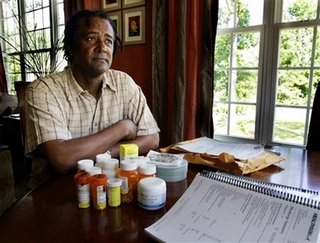poverty in Cleveland, poverty in paradise
Here is the featured story in the Cleveland Plain Dealer today.
One in three Clevelanders live below the federal poverty level. Does that sound high to you?
Even better are some of the previous stories by Sam Fulwood III, like this one, which describes life as an urban poor person.
Of course the cities aren’t the only places where poor people live. There are many poor people in rural areas as well. They are practically invisible, as are all poor people. Mostly because no one wants to look at a poor person. Maybe poverty is contagious?
I don’t think I caught poverty from anyone. I grew up in a working class home, typical of its time. Dad worked at a factory in Cleveland, Mom took care of the kids, the house, the laundry . . . well, you get the idea. I graduated from high school and joined the Army, mostly to escape the small town (just outside of Cleveland), and also to obtain the means to go to college.
Things went wrong from the get-go. Basic training was strenuous, but strangely rewarding. In 1974 so many doors were still closed to women that I was thrilled to be able to do what the "boys" did, and to do it successfully. Then I was shipped to Fort Dix, New Jersey for AIT (Advanced Individual Training), and things went terribly wrong. How wrong I didn’t fully appreciate until years later.
I was assaulted. Sexually assaulted. By a "fellow soldier." Same uniform. Different goals and attitudes.
Wow. Nothing quite tells a person that they aren’t wanted like that. I continued training, somehow, until a few days later, when I was sent to the hospital by my training officer. I’ll spare you the details of my physical ordeal, but the after-effects were such that I was hospitalized for 40 days.
The end of that part of the story is that I was discharged from the service without any benefits. Yup. Later I discovered that I could get the benefits, and had the discharge changed.
I went to college and worked. I earned both a Bachelor of Arts degree and then a Masters degree. I worked, but I had problems dealing with other people. I didn’t get them, and they didn’t get me.
I discovered something I could do. I loved horses, and kids. I started teaching riding lessons, and training horses. It wasn’t much of a living, but I was independent and self-supporting, although still near poverty level. I managed to compete successfully in the local horse shows (including Chagrin), on a shoestring budget. I had a lot of talent, just no money or backing.
In the spring of 2002, more things began to go wrong. I came down with pneumonia, or what I was told was pneumonia. After rounds of antibiotics (I was poor enough for Medicaid, so I was lucky enough to obtain medicine), I was finally given some prednisone, which made me well enough to resume teaching lessons. The loss of my self-employment income during my illness really sent me into financial trouble.
But things got worse. I never really felt right after that. At the same time, I was embroiled in a conflict with the Veterans Administration over my PTSD compensation (for which I filed in 1998, and was finally awarded in 2003). During the course of my illness I had great difficulty making my farm payments, and was maybe a month away from foreclosure when the award of back disability pay came in. I used the entire (meager) check to clear my mortgage, thereby granting my two kids and me a place to continue living.
When I was awarded the VA disability of $800 per month I was cut off of Medicaid. This made me solely reliant on VA medical care, located an hour and a half away from my home. Sometimes I had an operational vehicle. Sometimes I did not. There are no buses here, and to get there I had to cross two county lines.
Anyway, I never felt right again. I had overwhelming fatigue, muscle pain and weakness, joint pain. The VA doctors said it was from my PTSD and that I needed more counseling. The bean-counters in charge of compensation said I was physically sick, so they wouldn’t increase my compensation for PTSD. Hmmm. Finally the doctors diagnosed me with fibromyalgia and told me all I needed was more counseling and exercise. I was unable to exercise because of the pain.
I gradually shut down my riding business. This summer the VA doctors finally diagnosed me with rheumatoid arthritis, a mere four years after I presented with all of the symptoms and lab work indicative of it. That means I have waited four years to begin to be treated for this chronic debilitating illness. I can’t help but think that I might have saved my riding business if I had been able to be treated earlier.
Such is the plight of the mentally disabled and poor. No one believed that I was physically ill because I had a mental diagnosis. Good health care was not available, although I was lucky to have any health care at all. Because I persevered, I was finally able to get treatment. Now I try to figure out how to get by with what I have.
To be poor is to be invisible. It’s sort of like the attitude of many people about rape. It had to have been avoidable. Because if it’s not avoidable it could happen to anyone at any time. And that can’t be, can it?

